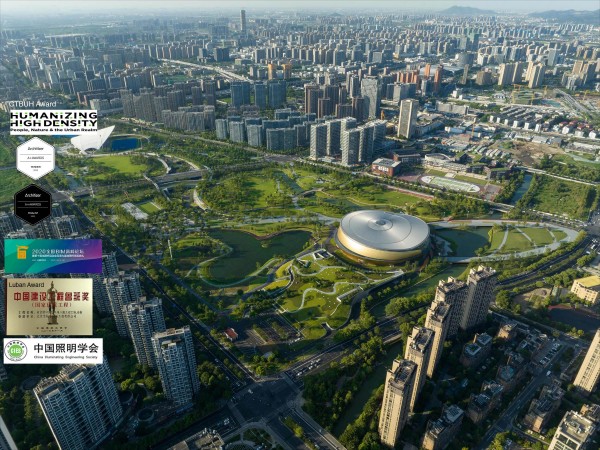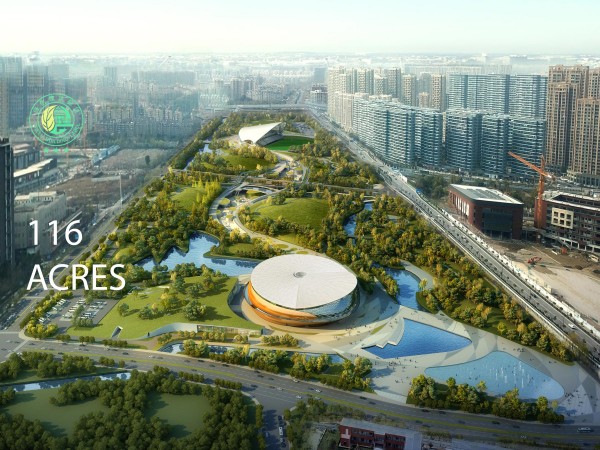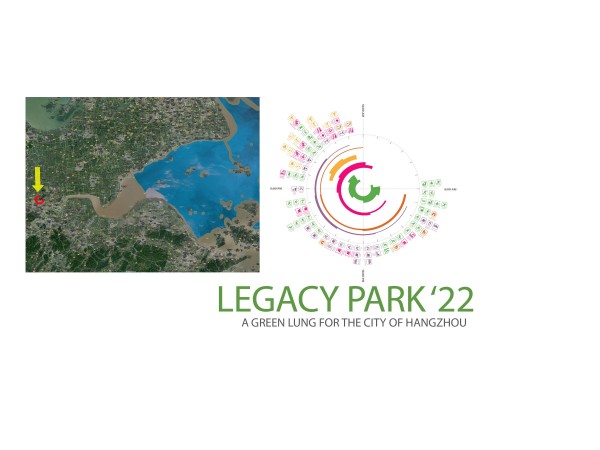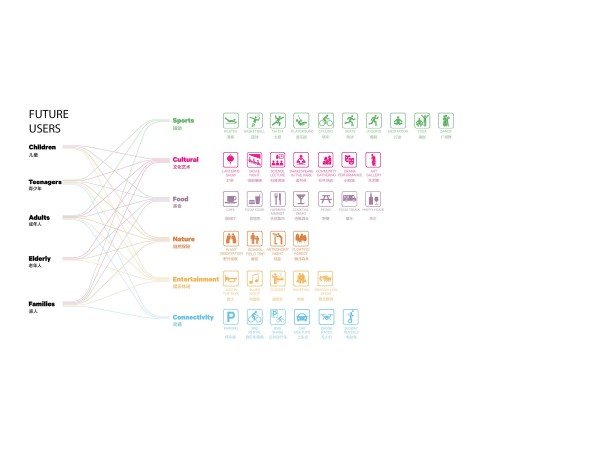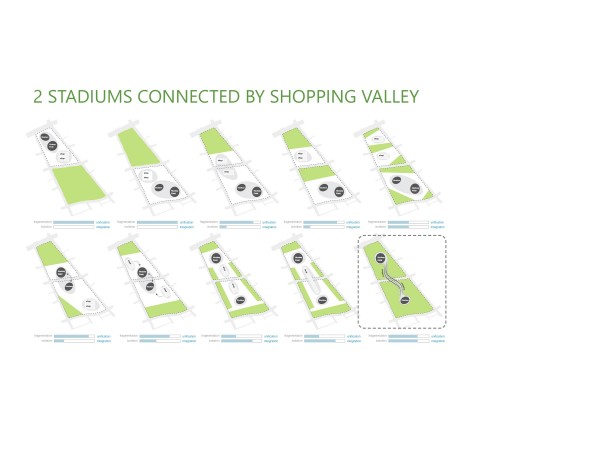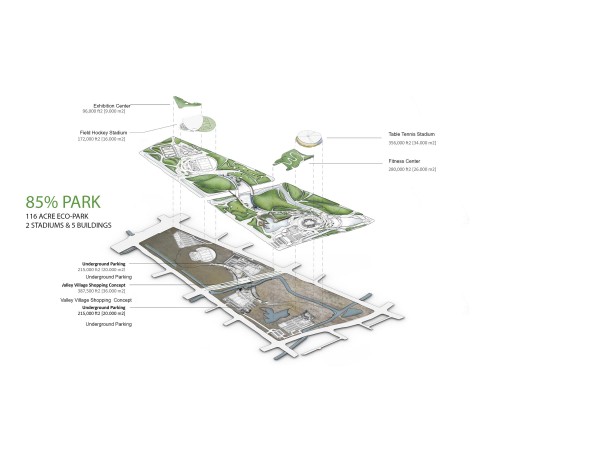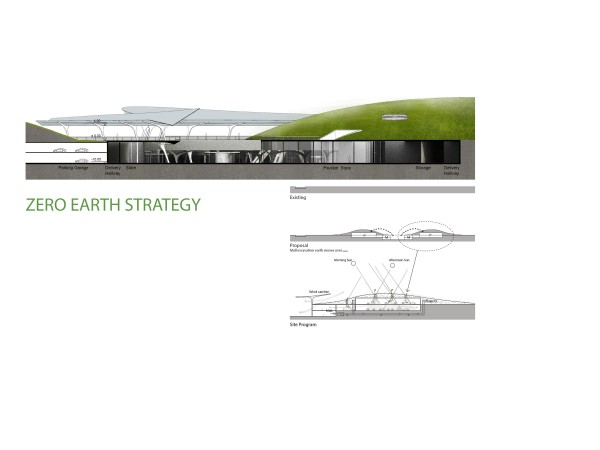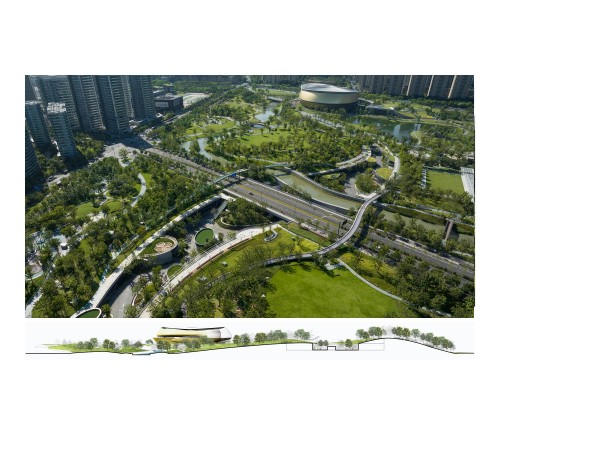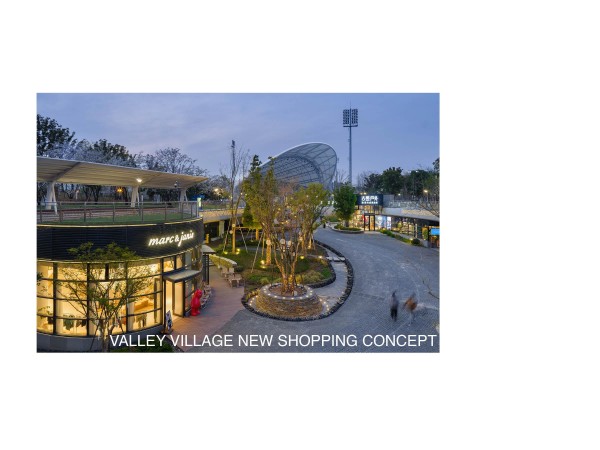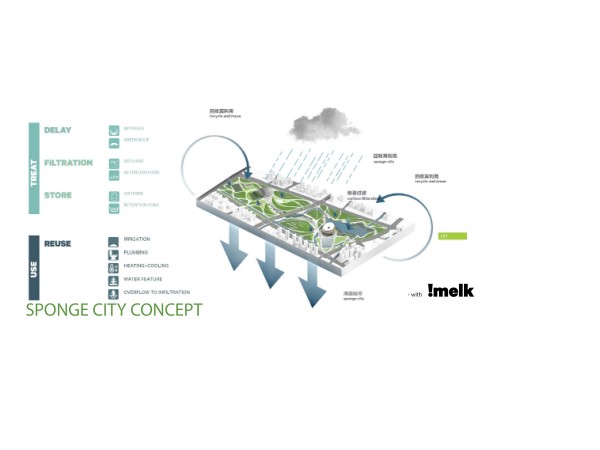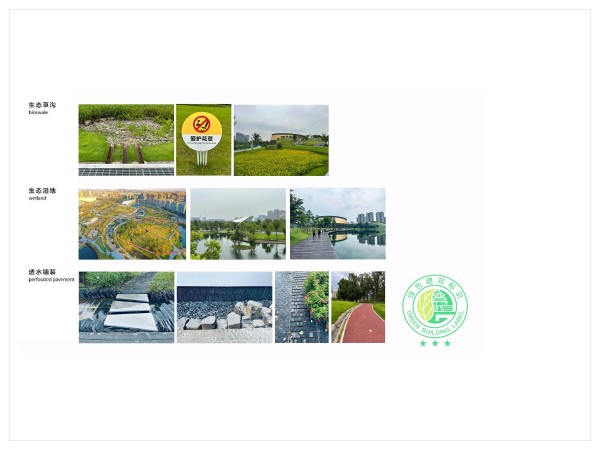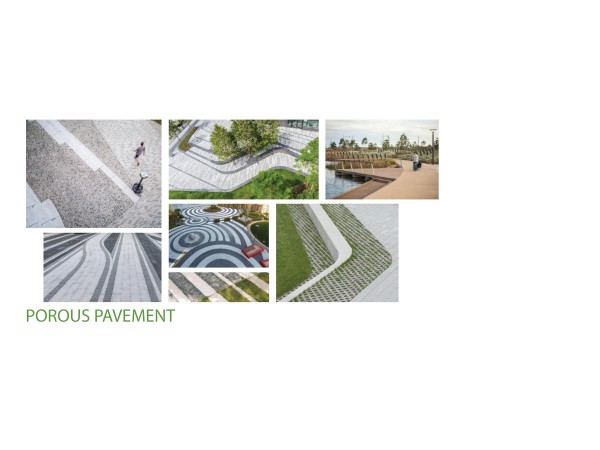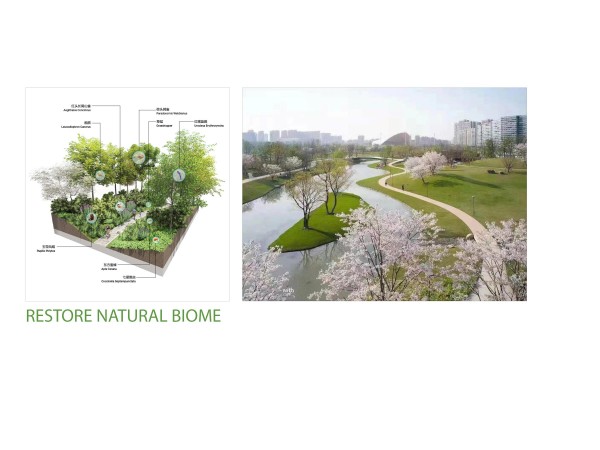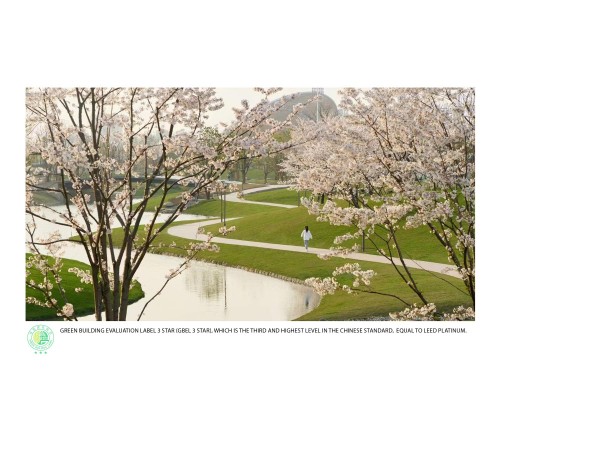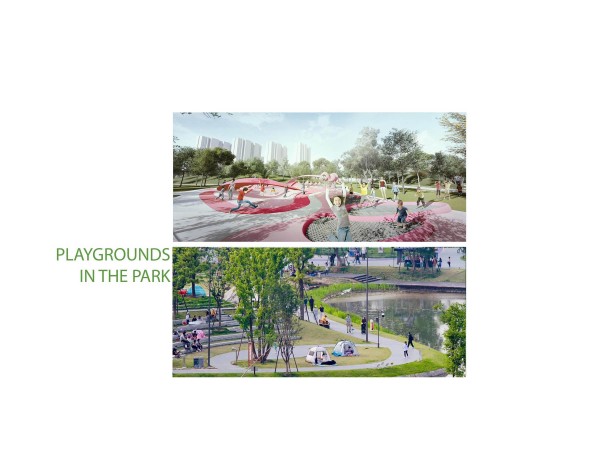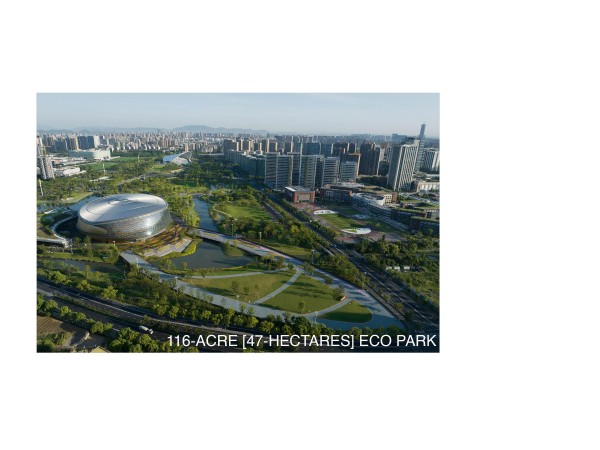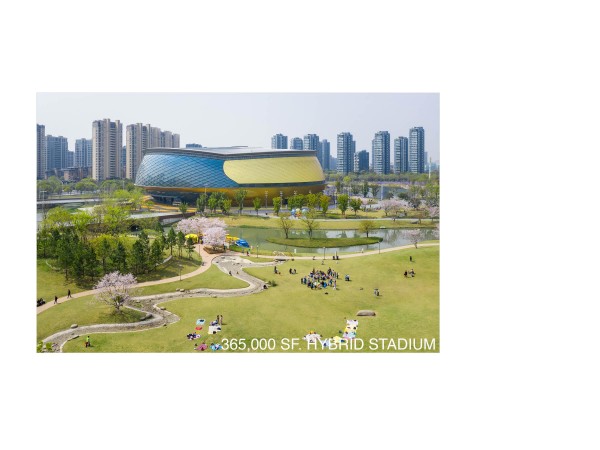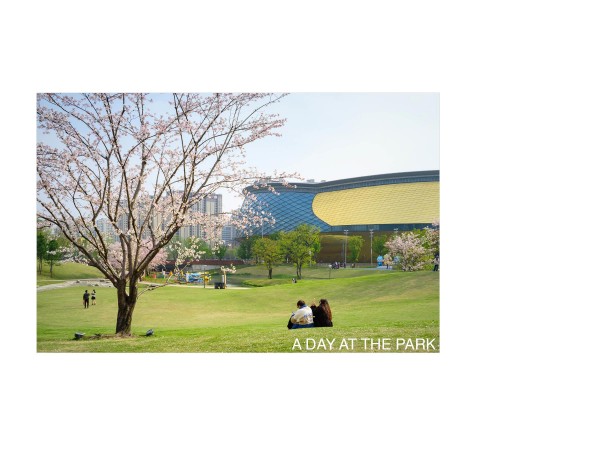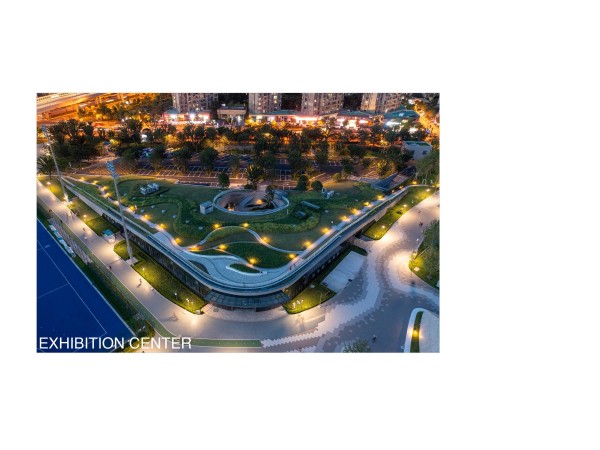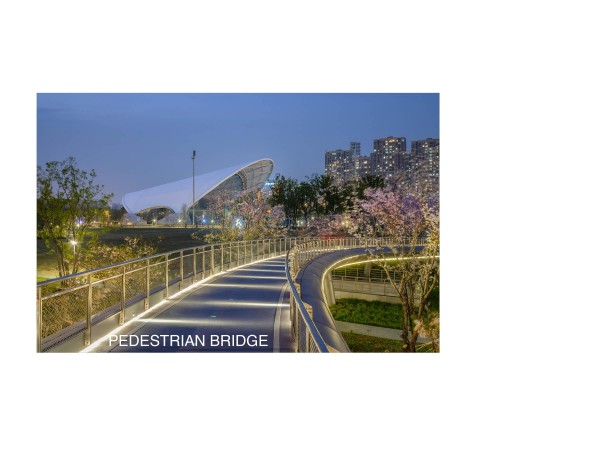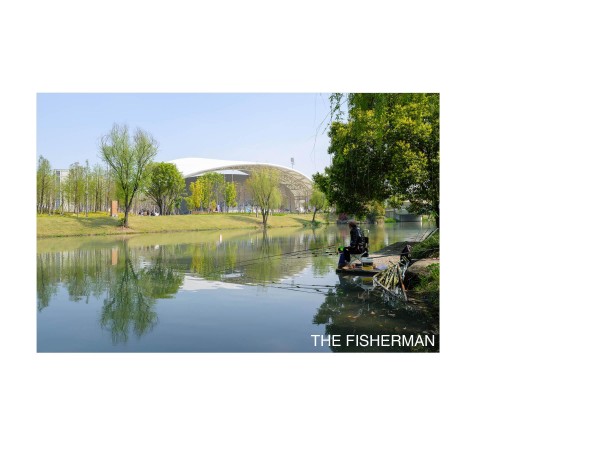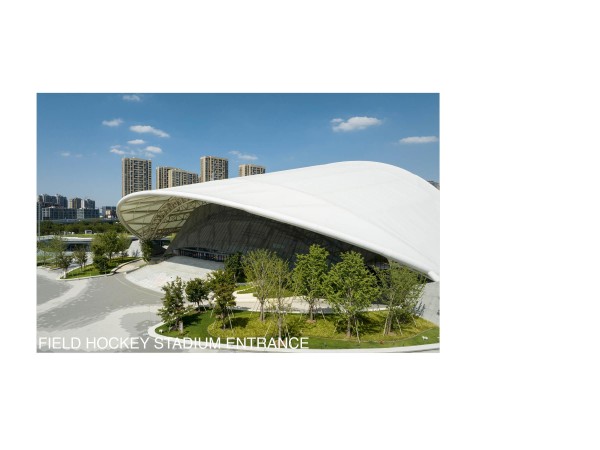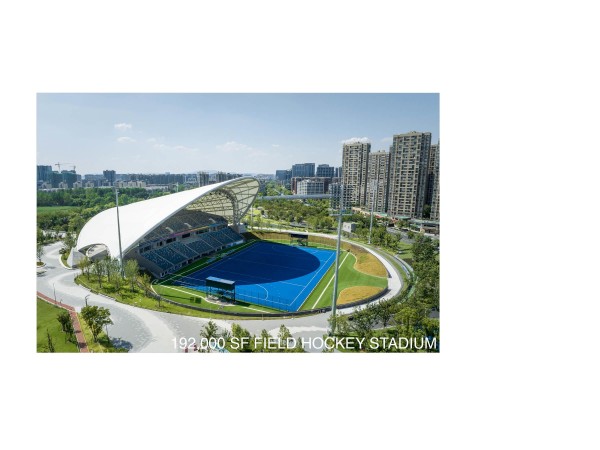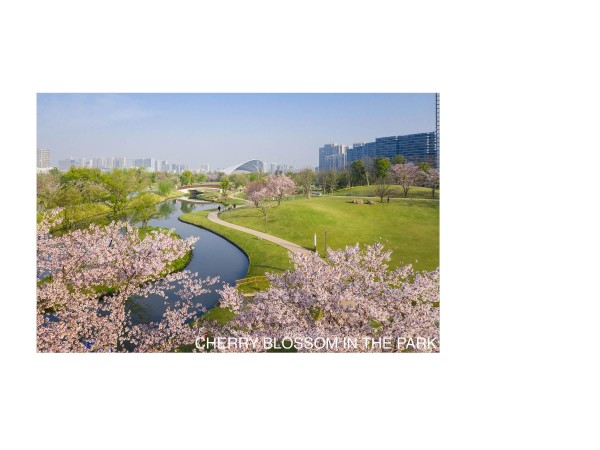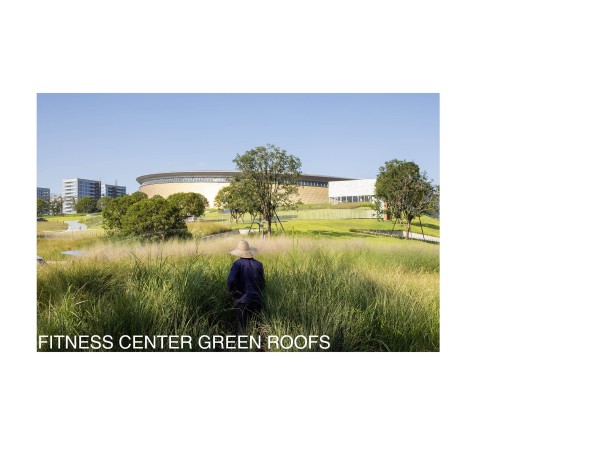An award winning Eco-Park that brings a 116-acre social landscape to the heart of a bustling skyscraper district.
Scroll all the way down to view a selection of publications on this work!
CHALLENGE
Selected from a group of 5 international firms, Archi-Tectonics won this invited competition [2018] for the Asian Games in Hangzhou/ China [2023]. The project faced three major challenges. First, it had to transform the 1.6 kilometer site bisected by a major road and river into an active public eco landscape. Second, the design concept aimed to create hybrid stadiums for the Games events that would transform into an event / concert spaces. Third, it had to set the course for sustainable, ecologically conscious development [Sponge City] in Hangzhou, one of China’s densest and fastest-growing cities.
INNOVATION
Archi-Tectonics incorporated 2000,000 sf of buildings into an ECO landscape where the requirement was to have 85% park. The 2 stadiums on opposite ends of the site serve as anchors & generators of new activities, and are connected by a pedestrian shopping valley that passes under the road and river with an aqua-duct and viaduct. This "Valley Village Mall", a pedestrian spine, is lined with shops, restaurants, cafes, kiosks, and outdoor gathering areas. To transition the park after the games, the design creates activities such as playgrounds, skate parks, hiking, birdwatching, boating, outdoor concerts, and major cultural events. The park and its 7 buildings, incl. 2 hybrid stadiums, a shopping valley, a visitor and fitness center and 2 parking garages were awarded the Chinese equivalent of a LEED platinum ranking. Smart BIM coordination & engineering reduced resources, we saved 1130 tons of steel while also reducing 20% construction time.
IMPACT
Using a zero-earth landscape strategy, the excavated earth from the restored wetlands and valley is re-used to create a rolling hill-scape. These interventions turn the site into a “Sponge City” with porous pavement. that collects, filters, and reuses rainwater for water features, irrigation, plumbing, and building heating and cooling. The Hybrid stadiums provide concert- and event spaces for the city after the games, and the park extends the activity of the city streets into the landscape to integrate the much-needed green heart to the area, strengthening and diversifying the ecology to its entire context, It thus creates a new center of public life in Hangzhou that will be used long after the Games end.
